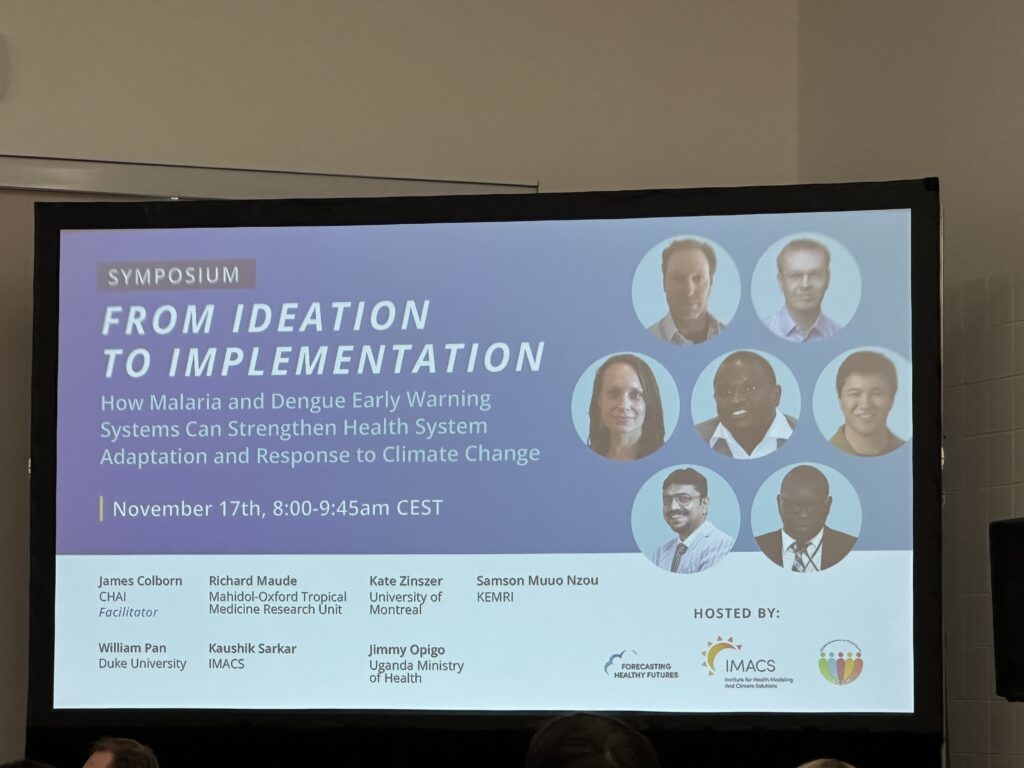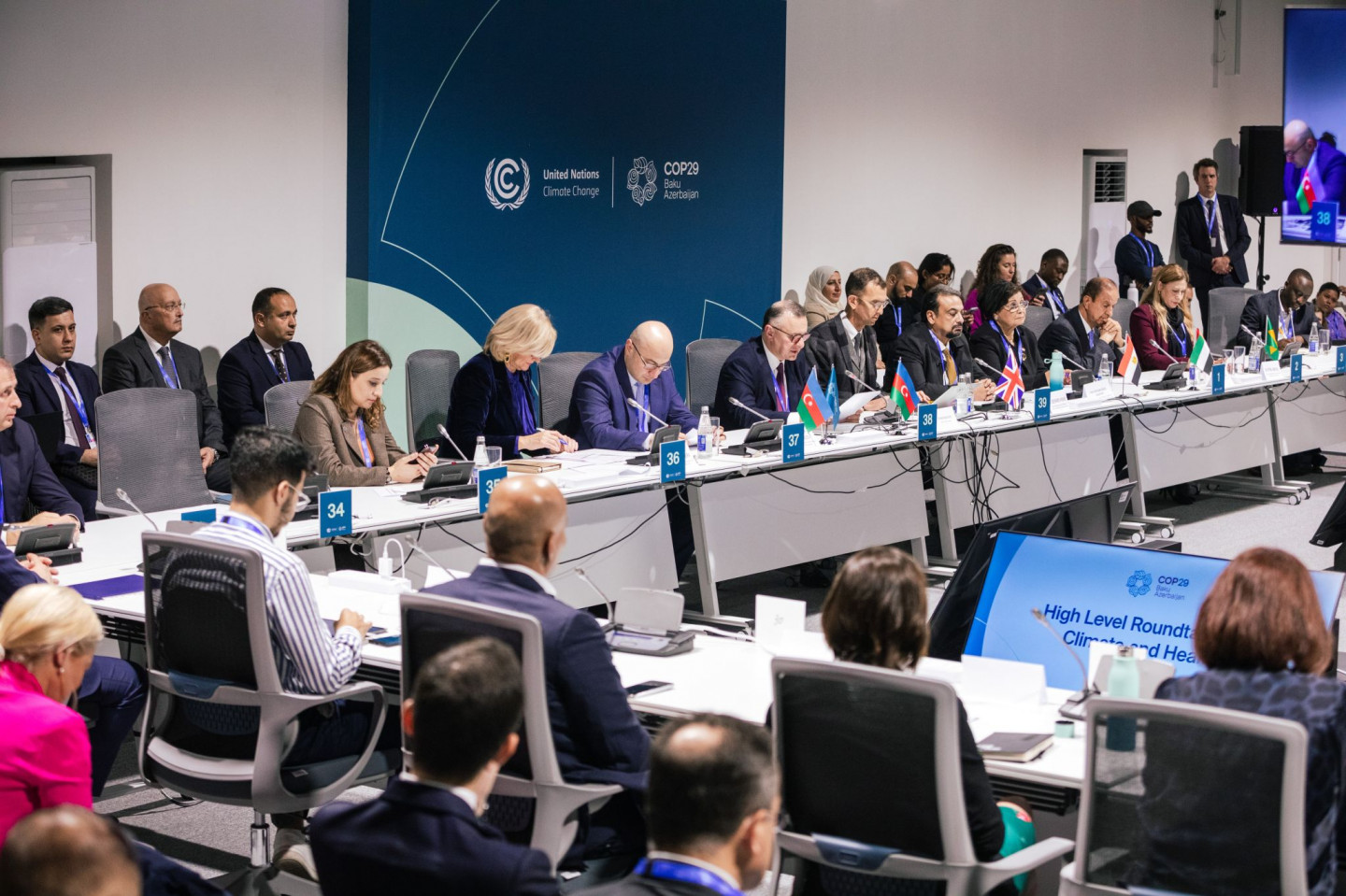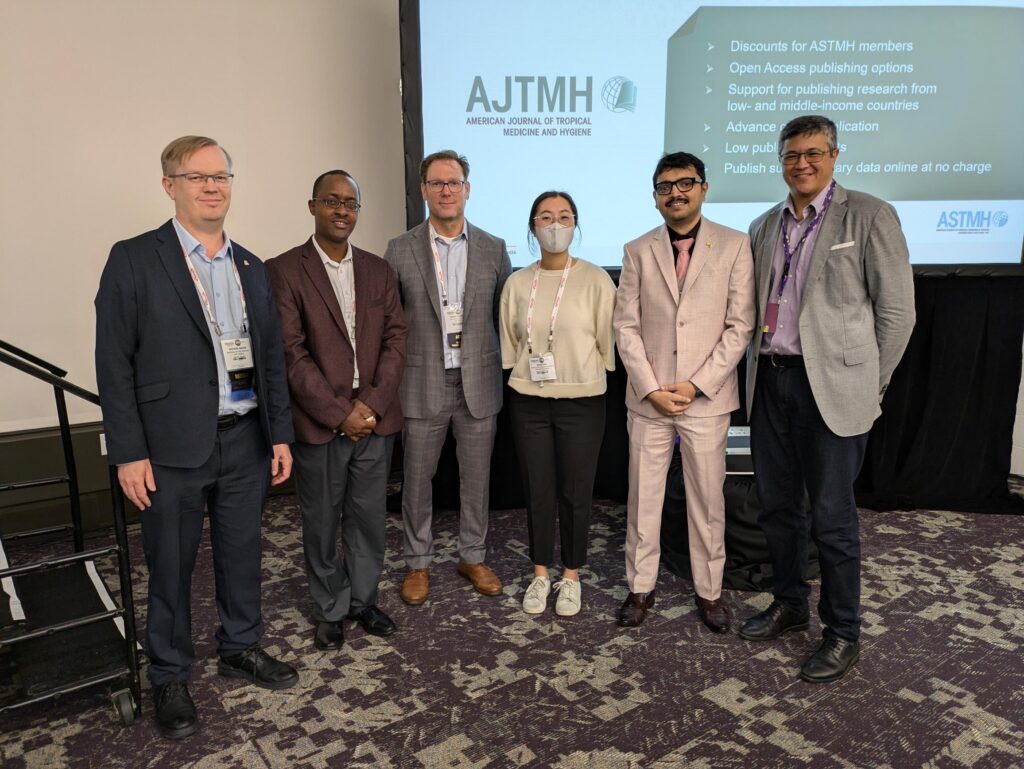
The World Bank estimates that climate change could lead to at least 21 million additional deaths by 2050 from just five health risks (extreme heat, stunting, diarrhea, dengue and malaria). To explore new perspectives and actionable solutions in response to the impending health impacts of climate change, the Institute for Health Modeling and Climate Solutions (IMACS) hosted a symposium at the American Society of Tropical Medicine and Hygiene (ASTMH) 2024 annual meeting, featuring members of the IMACS expert network.
The panel discussion, entitled, “How Malaria and Dengue Early Warning Systems Can Strengthen Adaptation and Response to Climate Change,” included reflections and observations on how climate-informed early warning systems (EWS) have the potential to serve as powerful adaptation tools to the growing threats of climate change to health by increasing effectiveness of disease control and strengthening.
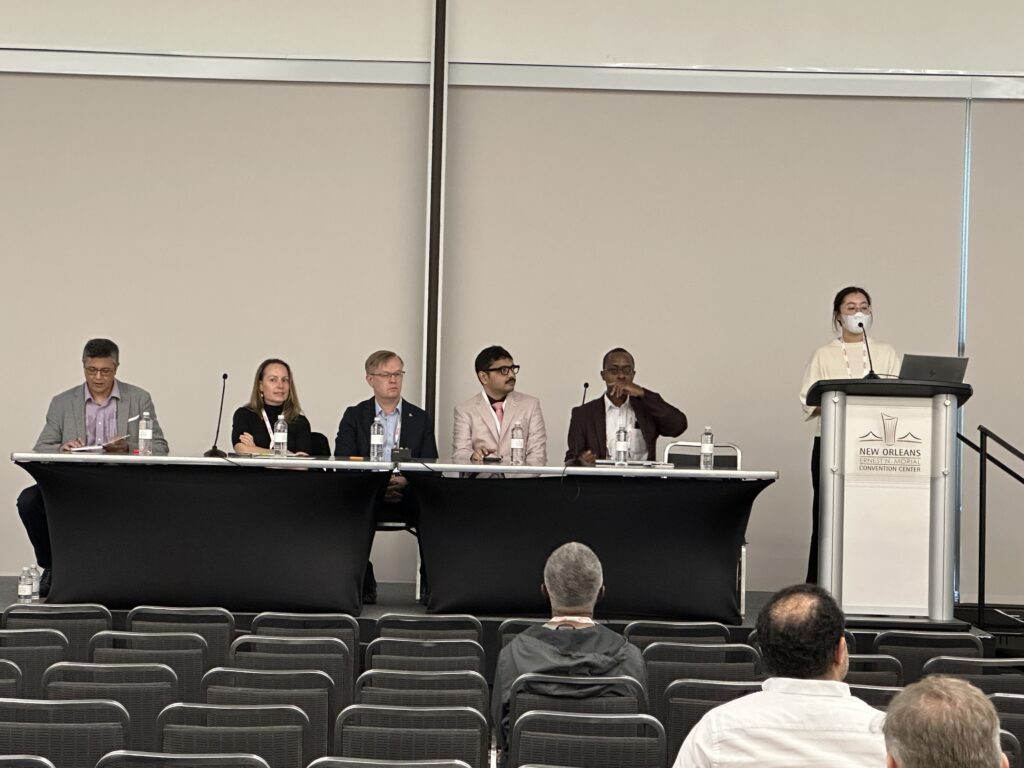

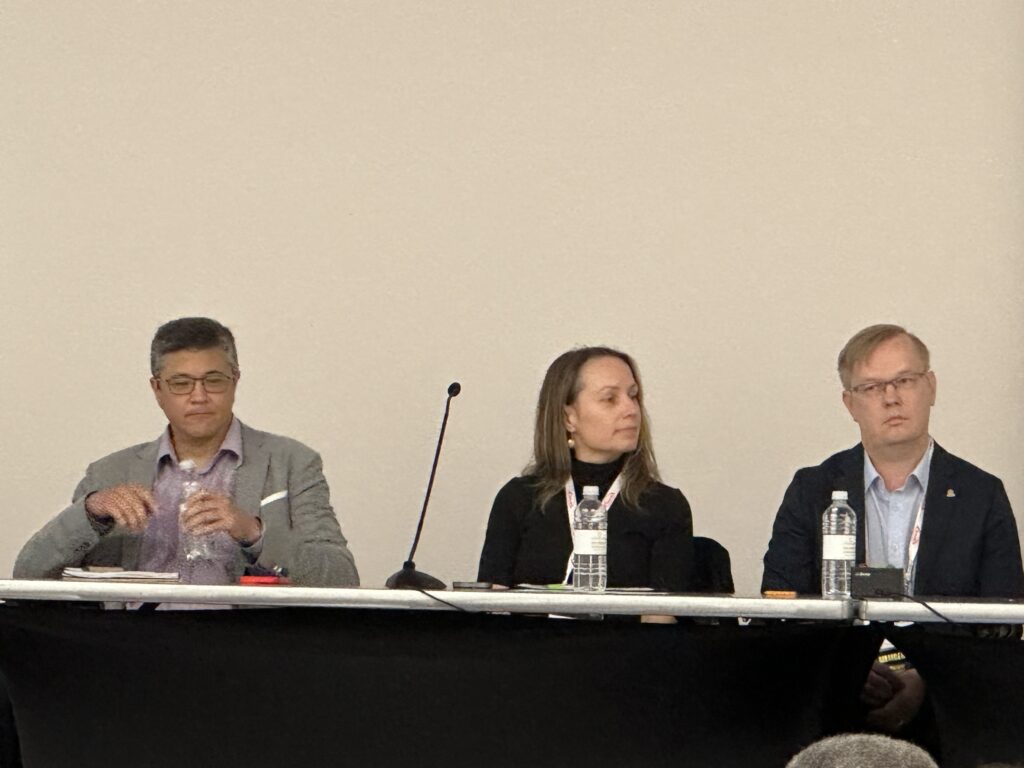
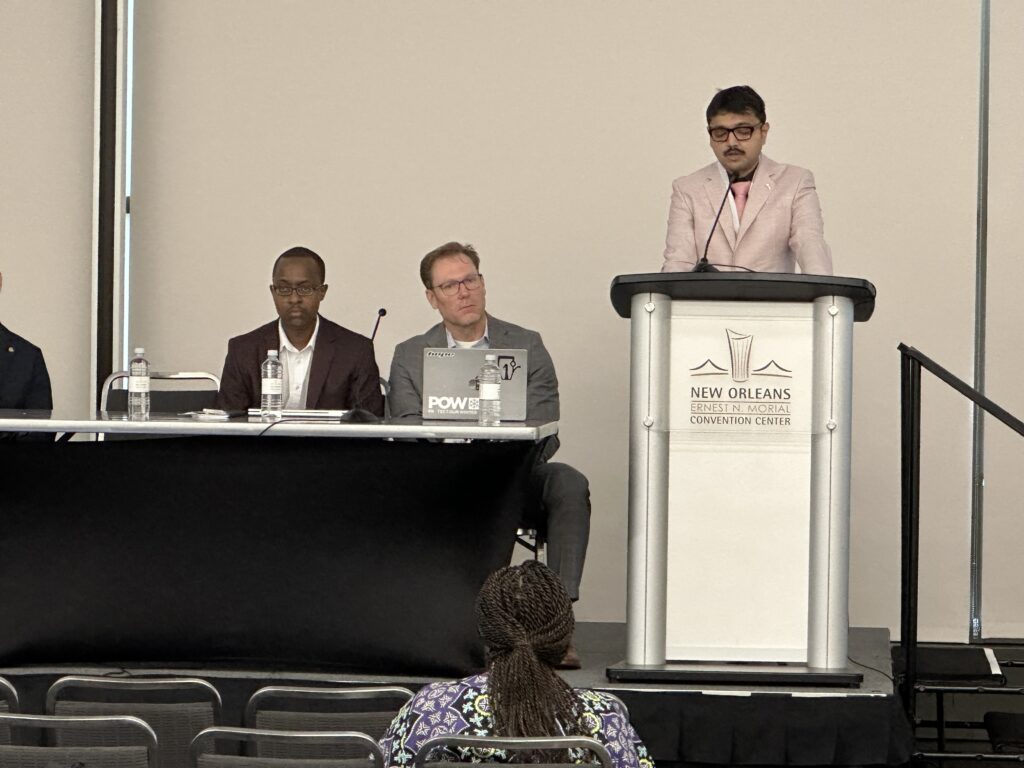
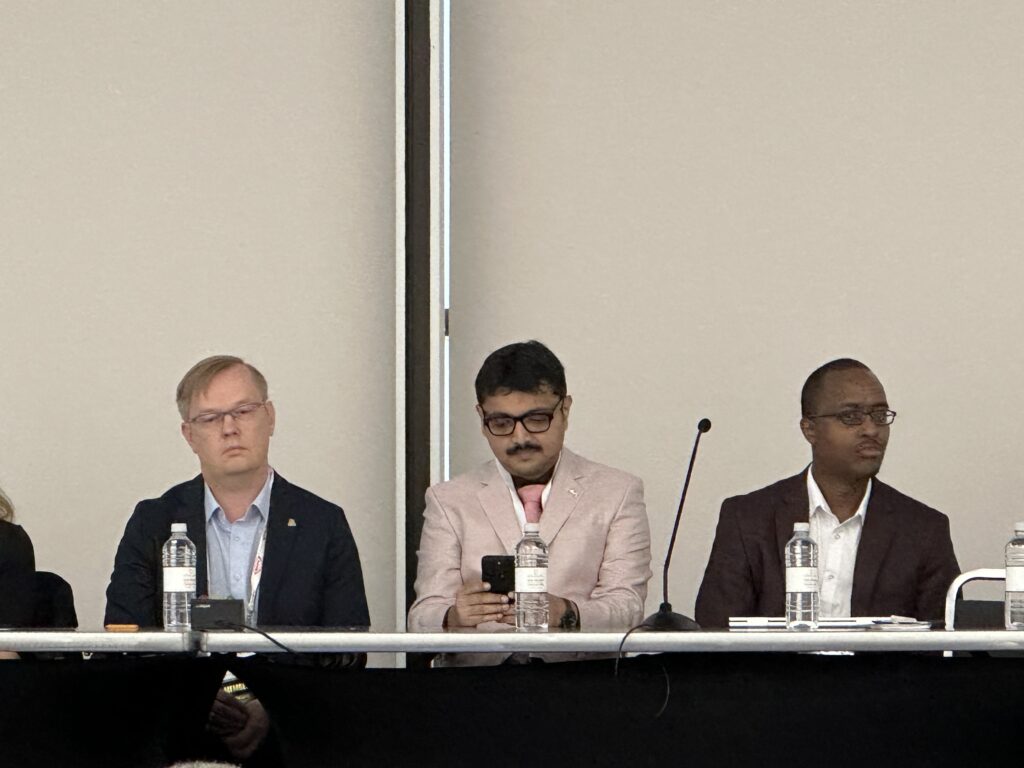
Here is what we heard:
“When fully operational, early warning systems can be helpful in building health systems resilient to climate change,” said James Colborn, Senior Malaria Advisor, Clinton Health Access Initiative (CHAI). “But to achieve full functionality, we need to address all different aspects of the ecosystem, and this involves the design of early warning systems, which must take into account many different factors, including availability of data, analytical tools, as well as stakeholders and communities that will be using the early warning system.”
“In terms of tools, there is no one silver bullet that can meet the purpose of early earning and response across countries,” said Dr. Kaushik Sarkar, Director, IMACS. “It takes a full toolbox of connected digital solutions, all coming together on a single, unified platform.”
“Population data is key and getting it from all relevant sources, even unconventional databases that are now becoming increasingly available,” said Francis Kimani, Research Scientist, KEMRI Centre for Biotechnology Research and Development. “By combining data from traditional and nontraditional sources, this will provide more comprehensive data that can better inform early warning systems, integral to understanding climate change patterns. Community-based organizations, for example, we sometimes think that they are only useful in giving social demographics, but there’s more that they can do to also inform our early warning systems.”
“Barriers to implementing early warning systems include identifying technical skills and capacity,” said Richard Maude, Head of Epidemiology Department, Mahidol-Oxford Tropical Medicine Research Unit. “There is also a lack of integration and data and the cost, including the need to pay for analysis, lack of knowledge and awareness, and a lack of protocols and policies to support. “
“I was against AI for a very long time, because I am a biostatistician, but we have embraced it in the last year,” said William Pan, Professor of Global Environmental Health, Duke University. “I found that it was actually quite useful, especially when used for forecasting and predictions. But when you have these different types of data coming from different places, and you’re using different methods that people aren’t used to, you need a tremendous amount of skill for the implementation and effectively make decisions, because ultimately what we’re trying to do is to improve the way public health is conducted.”
“Often, we heavily focus on technical metrics – like, how well is the system performing? How well can we predict the timing of excess cases, or the peak of cases, or what’s the lead time that these models can predict,” said Kate Zinszer, Assistant Professor, School of Public Health, University of Montreal. “But what I propose is that we go beyond these types of evaluations and include the practical utility of early warning systems in practice systems – including examining more closely how they are being used in practice and if or how they are useful…But the ‘if’ and ‘how’ should be grounded within the experiences and perspectives of the end users.”
“About data collection … there are three golden rules: quality, definition and frequency,” said Dr. Kaushik Sarkar. “The better the data, the sharper the details and the more frequently its updated, the more powerful your system will be.”
